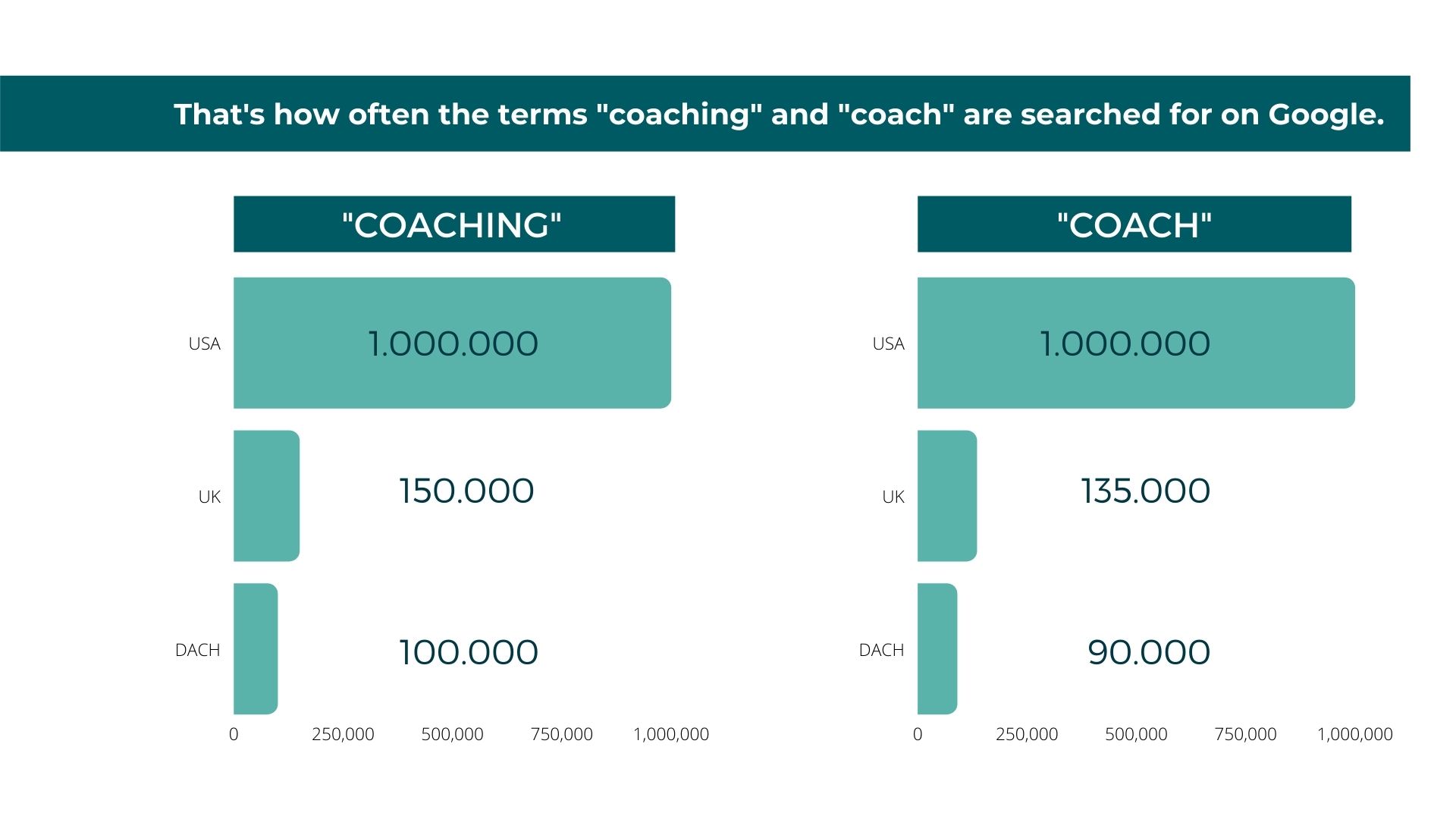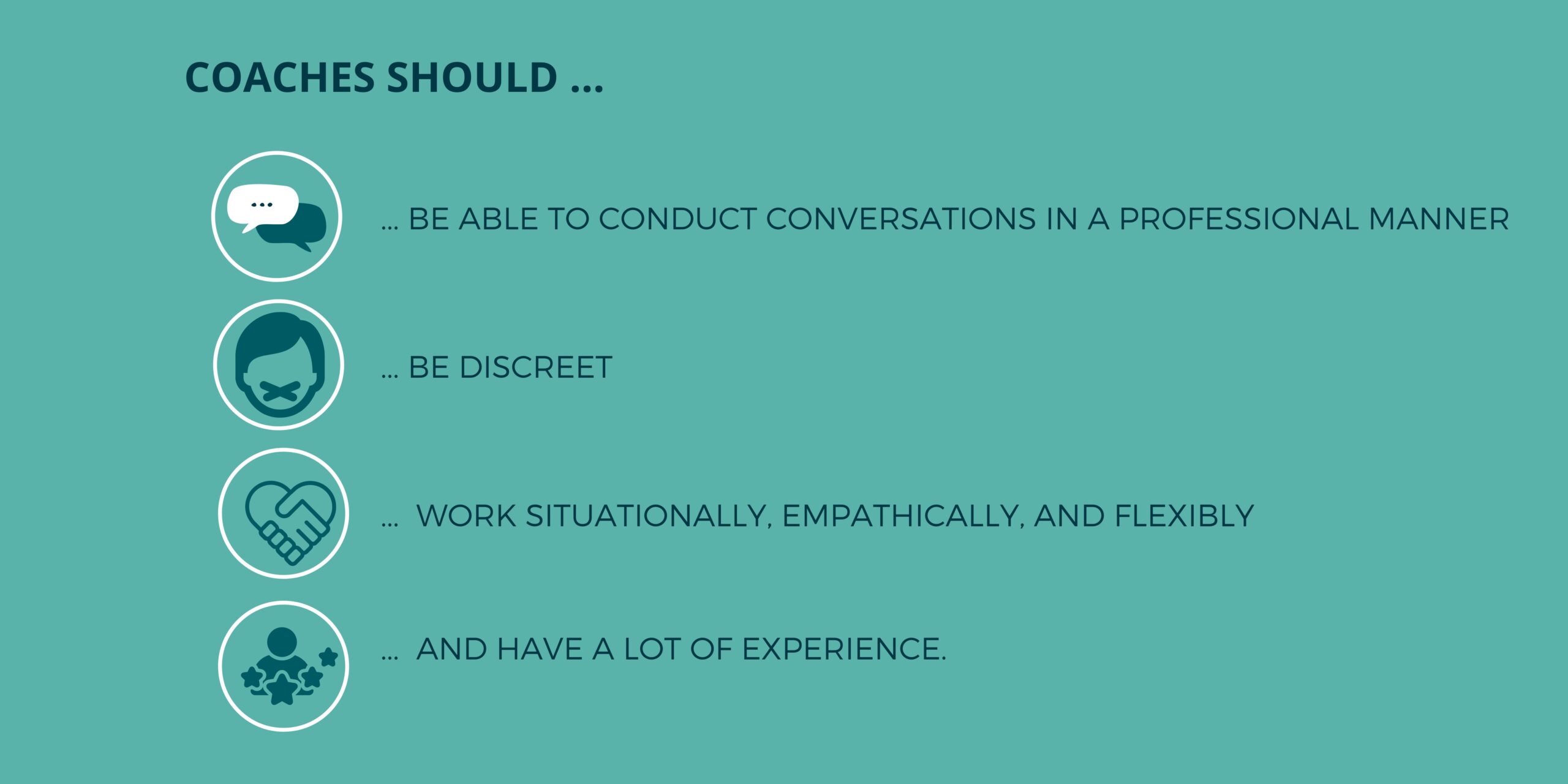
We as coaches are biased, our attitude towards coaching is subjective. We are convinced of
the potential of introspection and reflection. At MagnoliaTree, coaching is THE central instrument of what we do. Highest quality standards, ongoing evaluations and trainings and a long-term cooperation are our focus.
However, because coaching as a field is confusing and diffuse, we decided to write anarticle on the definition and delimitation of coaching. We wanted to create a guide to help those seeking coaching navigate their way through the field.
The demand for coaching is increasing, especially among those facing challenges in their role as a leader. Thus, the number of coaches is also on the rise. People looking for a coach often turn first to the internet.

Although demand is increasing, the quality standards of coaching remain a sensitive subject. There is still too little evidence of the professionalization in the industry. In many ways coaching is something of the Wild West. “Coach” is not a protected term, not a qualifying profession, and largely unstandardized. There are countless training institutes and options for training coaches with a wide margin of quality. This makes the field of providers nearly asinfinite as it is opaque.
So where to start? Isn’t the definition of coaching not already clear?
Is it still coaching if more than two people are involved? Is there any difference between trainers and coaches? Wouldn’t supervision make more sense? And what do people who call themselves coaches actually do? Or rather, what should they at least be able to do? And how can I recognize the quality of a coach?
The Origin of Coaching

The term coaching was coined in sports: athletes are supported and accompanied by coaches, either individually or in teams. This support is both technical and psychological,
helping athletes to perform at their best in moments of intense pressure. The coaches are experts in their field and are usually active (or were active) in the respective discipline.
In the 1980s, coaching outside of elite sports began to take root. But it was not until about 20 years later that it became a real trend and a significant increase in empirical research on the
subject emerged. For example, between 2003 and 2008 there were no less than five new journals in the English-speaking world on the subject of coaching.
What Does Science Say About Coaching?
Siegfried Greif describes coaching as a particular form or a “method of person-oriented consulting.” The task of a coach, according to Greif, is to provide support and personal advice in finding solutions or coping with various issues. Not to offer solutions, but rather to encourage individuals to find their own solutions. The goals of coaching are therefore rooted in problem solving or the further development of competencies or attitudes. From a scientific perspective, coaching is also multifaceted and exhibits a high degree of heterogeneity. It is an individual and tailored form of consulting, which is adapted by coaches to the changing needs of the counterpart. For this reason, coaching should always happen on a voluntary basis. Those unreceptive to feedback, will gain nothing from the process of coaching.

For many researchers, coaching is a subset of positive psychology. Positive psychology being the brainchild of Martin Seligman, thought up during his role as president of the American Psychological Association. The popularity of positive psychology was driven to prominence by a special issue of the journal “American Psychologist” in 2000.
The central goal of positive psychology was and is to explore how people live satisfied and successful lives, and what actions enable them do so. Utilizing this definition of positive psychology, coaching can be viewed as one of these actions. Employed to both strengthen satisfaction and increase motivation.
What is the Minimum Requirement to be a Coach?
The requirements for coaches in German-speaking countries have hardly changed over the
last few years.

Walter Schwertl sees coaches as having several roles. To Schwertl, a coach is an initiator, a motivator, and a pacemaker for a communicative process. Their task it is to help clients achieve success in their respective field. This “success” is to be achieved through intrapersonal processes accompanied by coaches.
Especially in the area of executive coaching, coaches are in great demand as “impulse givers.” They are valued in their ability to act neutrally and always maintain a relationship of equals with their coachees.
Whereas in middle management, coaches function more as navigators, providing orientation and guidance for self-help. At all levels, a coach-coachee relationship built on authenticity, partnership, trust, and responsibility is crucial for successful coaching.
Our Personal Checklist for Successful Coaching

The Coach …
- … is ready for a free initial meeting.
- … is transparent about the trainings and training directions (ideally a coach is trained in different directions).
- … has several tools of the trade.
- … offers coaching that is more than mere pedicure and not a subscription, but individual and effective. Therefore, package pricing should not be offered. It is difficult to estimate in advance how long the process will take. Sometimes one coaching session is enough.
- … should offer coaching that can be terminated at any time, because a deep coaching
- … process needs trust, freedom, and security. If the relationship with the coach is disturbed, there should be no obligation to continue the process.
- … provides information on how he/she prepares for the coaching (ex. how does he/she follow up?)
- … provides a written confidentiality statement.
Which topics are most frequently addressed in coaching?
In the last Marburg Coaching Study in 2016/17, the following 5 topics were mentioned most
frequently by clients to coaches:

MagnoliaTree‘s guide to the appropriate method

We at MagnoliaTree see it as our task to find, together with our coachees, the most effective a method for their given problem. In doing so, we always keep the desired goal in mind. If our client’s goal is to increase their quality of life, we often choose coaching. When it comes to increasing the quality of work, we rely on supervision. And when it comes to pure knowledge transfer, we use training as our method.
Workshops designed and conducted by MagnoliaTree are never just mere training or knowledge transfer. There is no ready-made seminar or lesson that we pull out of the drawer and reuse countless times. Rather, we are concerned with collaborating with clients to share existing knowledge through social learning, taking into account group dynamics From our experience it is more successful in the long term to learn from and with each other instead of being overloaded with a wealth of theoretical knowledge in a short time. We see ourselves as impulse-givers and framework creators for dignified change processes. Through our methods, one realizes knowledge is not only transcript, but a felt and lived experience.
All interventions must touch the heart for us to utilize them. They must be an experienced. They must enhance the quality of life. Immediately and in the future.




